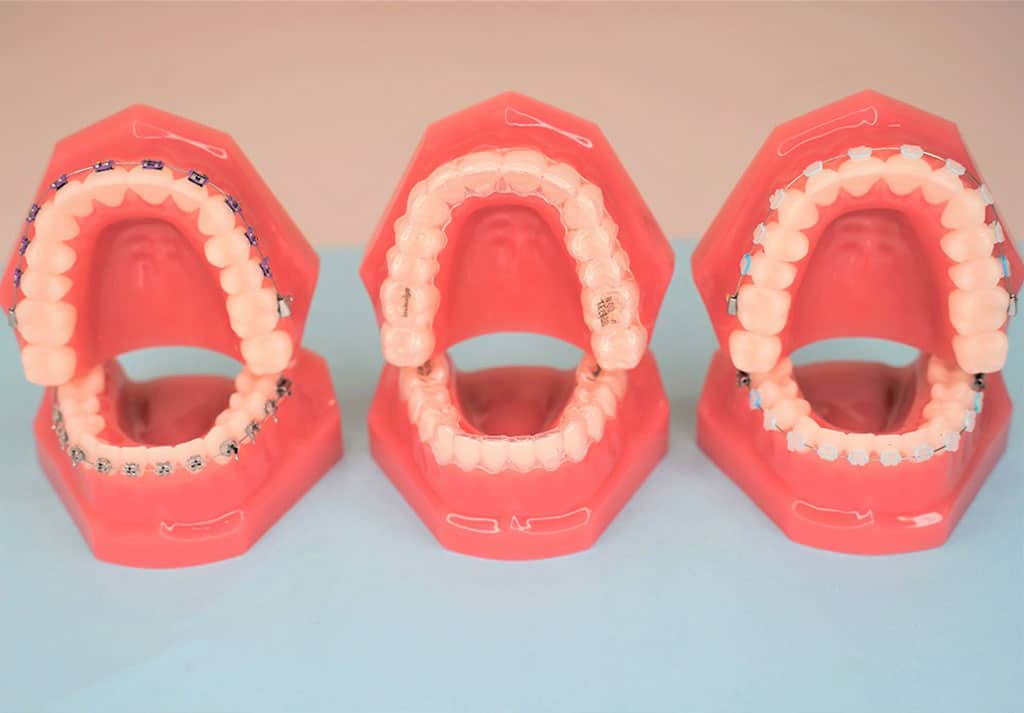Dental braces can straighten your teeth and improve your bite and smile. However, braces often cannot correct your bites all alone; they need help. Braces have metal brackets that straighten your teeth, but if a patient has a bad bite, the metal brackets can get damaged. That is where bite blocks braces come into play. In this article, you will learn about bite blocks.
Why Do I Need A Bite Block?
Orthodontic care goes beyond simply aligning teeth. It also involves fixing your bite. When your bite is not properly aligned, chewing or biting can cause excessive pressure on your jaw or TMJ and cause your teeth to wear down faster. We aim to prevent pain during chewing, damaged teeth, and other jaw or health issues in order to avoid or fix any problems promptly.

Certain patients experience misalignment in their bite, causing their teeth to chafe against each other instead of coming together correctly on the appropriate surfaces. New braces wearers may experience issues if they have a bad bite, as this can potentially harm their brackets.
The bite block stops that from occurring. It also collaborates with your braces to assist in readjusting your bite. This way, your jaw learns the correct biting technique while safeguarding your braces from harm. It additionally protects your teeth from potential damage.
Side Effects Of Bite Blocks
Bite blocks can feel odd in your mouth when first installed, but that should improve over time. Still, you may experience some side effects after a bite block is placed.
Problems with speaking
Until you become accustomed to it, the bite block may disrupt the positioning of your tongue, whether you are at rest or speaking. Therefore, it is possible to develop a minor speech limitation following the installation of the bite block, especially if it is placed behind the top teeth. This will get better as time goes on!
The most effective method to enhance your speech rapidly is to rehearse sounds to learn how to position your tongue on or near the bite block for speaking. If you struggle with conversing after a few weeks for others, contact your dentist solutions.
Problems with chewing
A new bite block will change the way your jaw closes compared to how it is currently closing. That is why chewing may be slightly difficult right after placing it in the mouth.
Eating soft, non-chewy foods in the initial days following the placement of your bite block will be beneficial. Soft foods can also alleviate soreness. Avoid foods that need extensive chewing, such as cooked meats such as steak, chicken, and pork chops.
After a couple of days, it is okay to consume these foods. However, it is recommended to slice them into smaller portions. After a week, you should be able to adjust to your new chewing method.
Soreness
Similarly to braces, your mouth might feel discomfort after the bite block is inserted. It makes your jaw work more, teaching it to bite in the right way. This indicates that your jaw and jaw joint (TMJ) might feel painful.
Mild discomfort can be relieved by using over-the-counter pain relievers like Tylenol or ibuprofen. Oral medications like Anbesol or Orajel can also provide assistance.
Eating soft foods or ones that don't require vigorous chewing would be beneficial now. Mashed potatoes, smoothies, scrambled eggs, and fish could be great choices during the initial week. If the discomfort continues for over a week or two, contact best rated orthodontist immediately.

Causing harm to your bite blocks
Bite blocks may deteriorate with usage. You can also choose to bite only on one of the bite blocks instead of both. Either way, contact miami orthodontist immediately. Your orthodontist will assess and decide if it needs replacing or if it has served its purpose and can be removed.
Bottom Line
If you want to straighten your teeth, talk to the south miami orthodontist and consult about your treatment. Book an appointment now and get a dazzling smile.






Comments